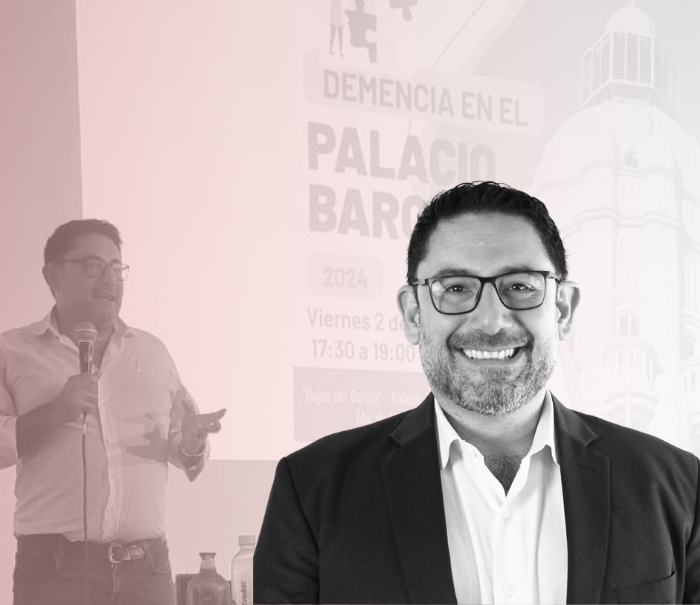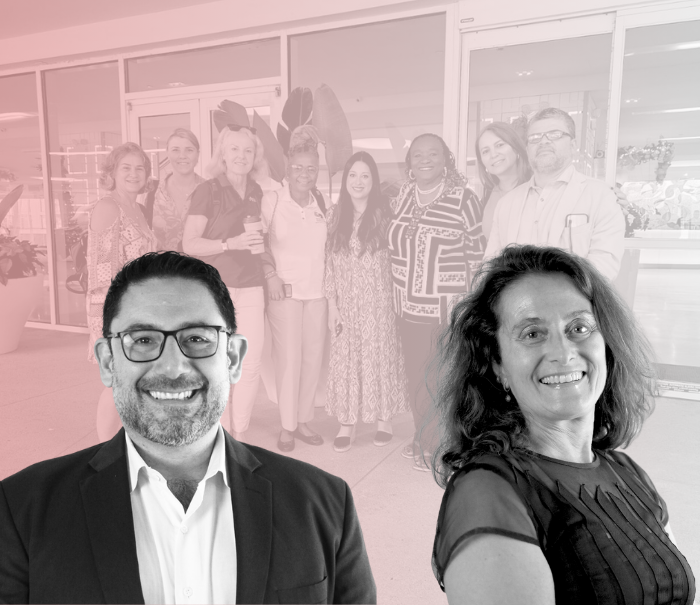In the first days of February, dozens of scientists and researchers from across Latin America travelled to Buenos Aires to attend the ReD-Lat Annual Meeting held at San Andrés University.
As the Regional Director of the Americas for ADI, I was invited to join a line-up of distinguished speakers, presenting an open event titled “Dementia at the Barolo Palace”. Situated at this landmark in the heart of Buenos Aires, the event provided a platform for leading regional experts, including Congressman and neurologist Facundo Manes and Cecilia Serrano from ADI’s Argentine member, ALMA. Our collective insights aimed to shed light on the challenges and advancements in dementia research, emphasizing the need for global collaboration.
Another objective during this event was to facilitate and strengthen the bonds between ADI’s members and ReD-Lat researchers, fostering collaboration and sharing of knowledge to advance the field of dementia research in Latin America and the Caribbean as part of ADI’s ongoing action to enrich its member associations through strategic alliances.
A highlight of the annual meeting was the ReD-Lat Consortium, led by Agustin Ibáñez, a GBHI fellow from San Juan, Argentina. This is a pivotal initiative that aims to expand dementia research in the region by combining genomic, neuroimaging, and behavioral data to enhance dementia characterization and identify novel avenues for treating neurodegeneration in diverse populations. This five-year project represents an unprecedented opportunity for regional synergy and multidisciplinary research, promoting harmonization of global strategies to treat and prevent dementia in underserved populations worldwide.
The ReD-Lat Consortium, anchored in Argentina, Brazil, Colombia, and Peru, receives R01 funding from the “US-South American initiative for genetic-neural-behavioral interactions in human neurodegenerative research”. Additional support comes from various partners, including the Alzheimer’s Association, the Rainwater Charitable Foundation, and other countries such as Mexico and Chile. Satellite projects expanding the initiative encompass family assessments, EEG recordings, natural speech analysis, and learning experiences.
The insights gained from the presentations of the latest research at ReD-Lat, together with the connections made between ADI member associations and key researchers, have been invaluable. Keeping abreast with ReD-Lat’s advancements, and nurturing member dialogues with these initiatives, are paramount for Latin America and the Caribbean. The upcoming ADI 36th Global Conference in Krakow, Poland, and online from April 24 to 26, will serve as a crucial platform to monitor the progress and impact of ReD-Lat’s endeavours in the realm of dementia research. The collaboration between ADI and ReD-Lat exemplifies the commitment to global cooperation in tackling the challenges posed by neurodegenerative disorders.


